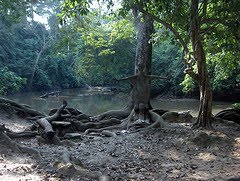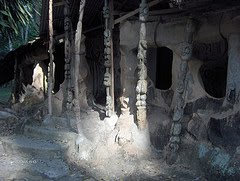Wednesday
THE EMERGENCE OF AMERICA AS A NATION AND AS A WORLD POWER COULD BE ATTRIBUTE TO WHAT STAGE OF HIS HISTORY?
The Emergence of America as a nation and as a world power could be attribute to what stage of his History?
The America is Bounded on the east by Atlantic Ocean and on the west by the Pacific Ocean, bordered by Canada to the north and Mexico to the south.
Why Did America Become a World Power?
During the late 1800s, the fact that America had become a world power became very
evident. Events around the world and at home had changed the nation and forced it to branch out and become more active abroad. Three main reasons for this were: the spreading of other nation's power and influence, traditions and values that had been part of America since the beginning, and the need for raw materials, and more importantly, economic markets around the world. America took on the role of a much more imperialistic nation than it had been in the past.Nations around the world were becoming more imperialistic and straining to spread power and influence to new lands. In a way, America may have felt pressure to follow suit. With other countries dominating larger areas in new locations, America needed to do the same to compete. It was a sure bet that America would be at risk of losing power and influence if other countries like Japan, Germany, and Russia were gaining it across the globe. The Unites States, in a way, succumbed to the international peer pressure, and so did Theodore Roosevelt. The Monroe Doctrine stated that other countries should not interfere with the Western Hemisphere, but Race was an issue as well; people saw the darker skinned races as inherently inferior and savage. These were all solidified in our nation's mind from long ago. Some contest this, saying that one cannot hold economic reasons solely accountable for Americas expansion into a world power. hat was to stop one of the nations that was become more powerful from simply refusing to recognize the document. Other nations had put the squeeze on America by threatening their security as a powerful nation and their dominance of the Western Hemisphere. The values that had driven American expansion since the West was won were still strong in the minds of the people, and the economy was crying out for control of new markets around the world. America's status as a world power grew also from tradition that had been rooted deep in the people of the nation since it was formed. This may be true, but the need for markets and materials was surely a factor on some level. All These things contributed greatly to America doing the types of things that, only a little over a century before, it itself had fought against. Roosevelt's "big stick" attitude caused him to take action, sometimes with disregard for formalities; He acquired the Panama Canal, arguably, through forced revolution. America couldn't risk getting pushed around by other countries so it had to act. Economic need for materials and markets surely did play a role in the emergence of America as a power of the world. It was seen as a necessity to spread not only Christianity but also freedom and civilization. This is how people felt at the time and for centuries before that. Rather than formally acquiring land, the United States went for a more subtle approach.
Furthermore,
Subscribe to:
Posts (Atom)









